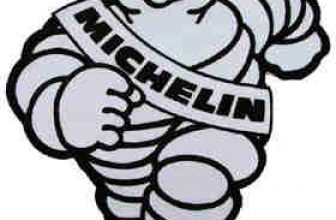
The key role of RFID in the car sharing industry
[ad_1]
With the increase in gasoline prices and consumers’ awareness of environmental protection, the car-sharing industry has begun to flourish. At present, about 348,000 people in 18 countries, 600 cities, share about 11,700 cars, according to a report released by the Center for Transportation Sustainability at the University of California, Berkeley College. Almost all of these shared car drivers use RFID cards or key rings to pick up the car. “RFID cards are the most important way to retrieve cars for shared cars,” said Susan Shaheen, director of the research center and one of the authors of the report.
Car-sharing club members first book a car online, and then pick up the car at a designated parking spot on the scheduled day. There are usually several parking spots in a city. Most clubs charge by the hour, with a small fee per mile. The cars provided by the club are fuel-efficient, many of which are hybrid or electric cars. In order to facilitate the collection of the car, the club sends an RFID card or key ring to each member.
Before the club member came to a reserved vehicle, he held the RFID card and held it close to a small computer on the dashboard, which contained an RFID reader. The reader reads the ID number of the tag in the member’s RFID card through the windshield. Then, the computer sends the number through the cellular phone network to the reservation system, which runs on a server maintained by the club. If the system shows that the member has reserved the car, the computer sends an instruction to open the car door.

City CarShare members put the RFID card close to the RFID reader on the dashboard so that the reader can read the member’s ID number
Most clubs require drivers to put the keys in a designated place in the car. The key can be kept in the car because the computer also controls an ignition system lock. When the driver leaves the car, he uses the RFID card to lock the door, and the ignition system is automatically locked. In this way, even if the car thief forcibly enters the car and gets the key, he cannot start the car; on the contrary, the member unlocks the ignition system while opening the car door with the RFID card. Some clubs require members to store their keys in a small cabinet on the dashboard of the car. The cabinet will be automatically locked; it can only be opened by entering the member’s ID number on the computer keyboard.

Enter the member’s ID number on the keyboard of the computer to open the key storage cabinet
WhizzGo is a British car-sharing service company. In 2004, the company cooperated with the German company Invers (the largest provider of RFID car collection systems) to develop a car collection system. WhizzGo embeds a passive 125 kHz Hitag RFID inlay produced by NXP into each card, and the inlay can be read by a computer on the dashboard. The computer also controls the small cabinet that stores the car keys on the dashboard. When the RFID card is successfully read, the computer automatically opens the door and unlocks the small cabinet. The ignition system is connected to the lock of the cabinet, and the car can only start when the cabinet is normally opened.
There is a GSM-based SIM card in the computer, which can exchange data with the WhizzGo server. The driver can also send text messages to the company’s scheduled personnel through the computer keyboard, such as requesting to extend the vehicle usage time.
City CarShare is a non-profit organization established in 2001; the company was the only company providing car sharing services in the San Francisco Bay Area until 2006. During the early period of operation, City CarShare could not find a simple and directly applicable car reservation system and RFID car pickup system, so they developed a system themselves.
Soon after, City CarShare discovered that the time it took to develop and manage the pickup and reservation system far exceeded what was originally expected, so that it limited the company’s business expansion. Therefore, the company established another new company-OpenCar Networks.
In addition to maintaining City CarShare’s reservation system and car pickup system, OpenCar Networks also licenses the technology to other car sharing companies. Car-sharing companies in Austin, Cleveland, Minneapolis, Philadelphia, and Wilmington all use OpenCar Networks. OpenCar’s RFID key ring uses a 125 kHz RFID tag, and an RFID reader is embedded in the computer on the dashboard. The ID number of the tag-encoded member is protected by a 40-byte encryption key to prevent unauthorized parties from intruding.
The RFID inlay and reader used in the OpenCar platform are supplied by Applied Wireless ID. The system was originally used for access control and was powered by the building’s electrical system; therefore, when the system was used on the car sharing platform, AWID and City CarShare had to re-adjust the AWID SR-2400 reader to reduce its power requirements.
Currently, City CarShare has 8,500 active members and 250 cars. In the future, the company hopes to establish a cooperative relationship with the public transportation system in the San Francisco Bay Area, using RFID bus cards or NFC mobile phones to pick up cars.
[ad_2]




